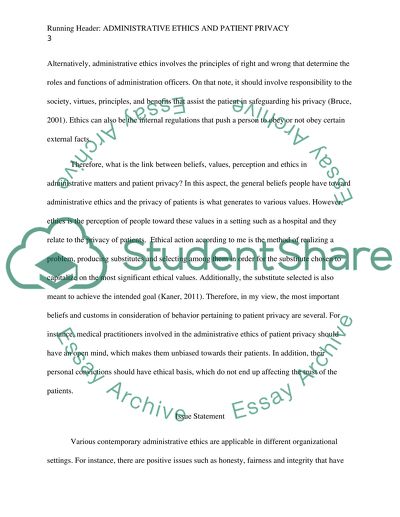Cite this document
(“Adminstrative Ethics and Patient Privacy Research Paper”, n.d.)
Adminstrative Ethics and Patient Privacy Research Paper. Retrieved from https://studentshare.org/philosophy/1437117-adminstrative-ethics-and-patient-privacy
Adminstrative Ethics and Patient Privacy Research Paper. Retrieved from https://studentshare.org/philosophy/1437117-adminstrative-ethics-and-patient-privacy
(Adminstrative Ethics and Patient Privacy Research Paper)
Adminstrative Ethics and Patient Privacy Research Paper. https://studentshare.org/philosophy/1437117-adminstrative-ethics-and-patient-privacy.
Adminstrative Ethics and Patient Privacy Research Paper. https://studentshare.org/philosophy/1437117-adminstrative-ethics-and-patient-privacy.
“Adminstrative Ethics and Patient Privacy Research Paper”, n.d. https://studentshare.org/philosophy/1437117-adminstrative-ethics-and-patient-privacy.


